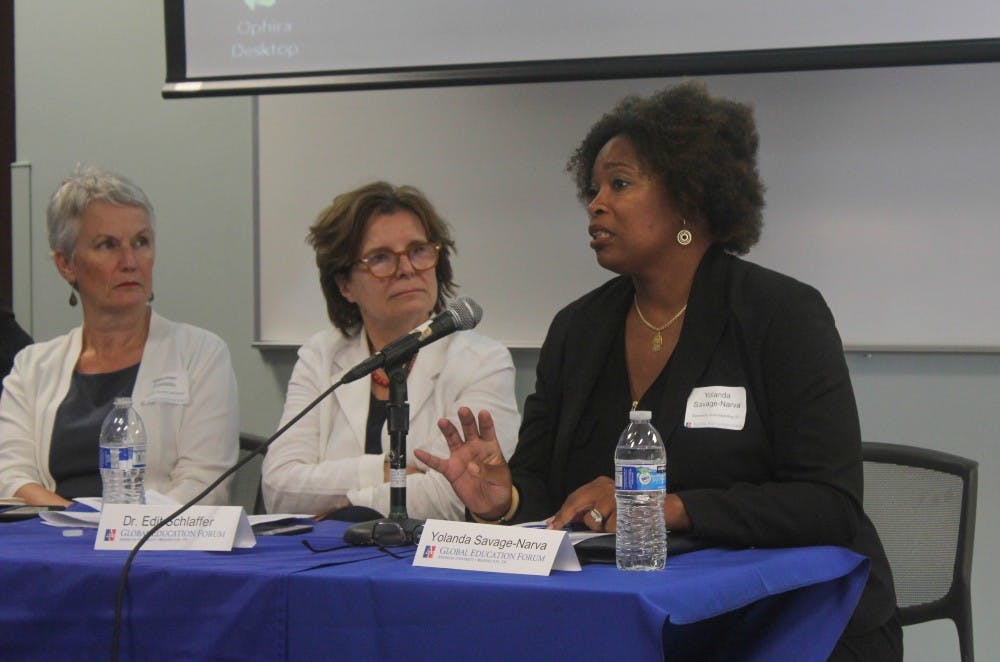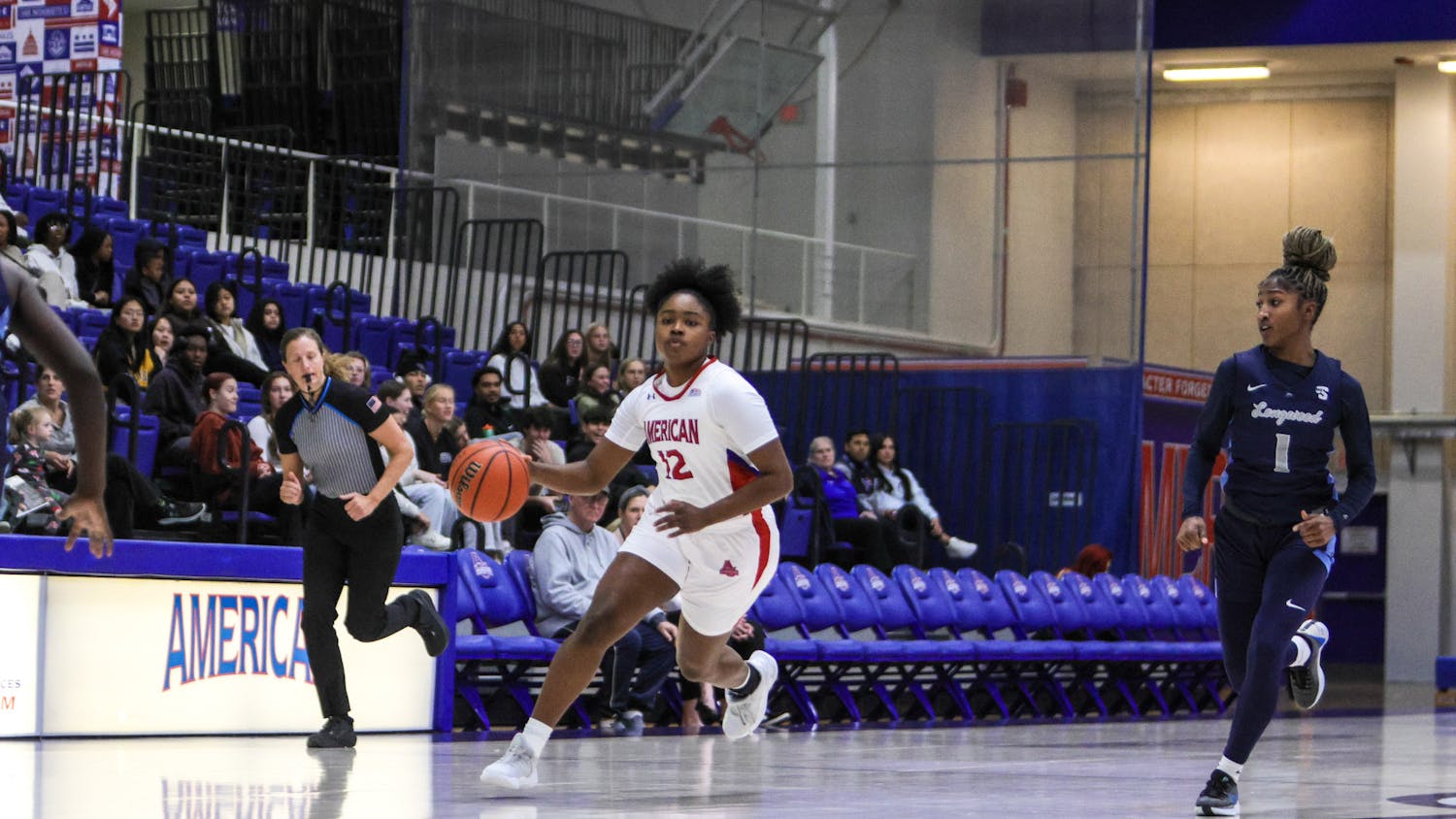The School of Education hosted a global education forum on Sept. 7 to address issues of race and cultural dissonance in education in both K-12 and at the University level, specifically regarding hate and discrimination in the classroom. The forum featured experts in various fields including public policy, academia, government and the non-profit sector, who explored the complexities of hate crimes on campus and how to fight them.
Dr. Cynthia Miller-Idriss, an associate professor of sociology and the director of International Training and Education program at AU, hosts the forum every semester, gathering experts from all fields each semester to discuss how global issues that are relevant to current affairs.
This semester, Idriss posed two questions to the panelists: one regarding issues of education on a global scale and the other addressing how universities should handle hate on college campuses -- hot topics at AU following a hate crime on campus in May.
The panelists all agreed that the single most important issues today in education and communities are hate and the crimes that result from it. In addition, they addressed how education can and must be used to educate and open minds to resist hate.
“[Education] is a space that can be abused by state systems intentionally to close minds,” Miller-Idriss said.
Maureen Costello, the director of the Southern Poverty Law Center’s Teaching Tolerance project, told a story about a school in Arkansas that was being defaced by swastikas on the walls in hallways and bathrooms. Costello described hate crimes as a form of “racial terrorism.”
“We are allowing terrorists in communities to thrive in schools where more than 50 percent of our students are students of color,” Costello said.
The Southern Poverty Law Center developed a project called the “The Trump Report” to measure changes in education since the 2016 election, Costello said. Researchers concluded that schools have seen an increase in slurs, harassment and negative racially motivated incidents since Trump’s election. The center gathered responses from 10,000 teachers and 90 percent said that the election had a negative impact on their school, according to the report.
Terri Johnson, who serves as executive director for the Center for New Community, noted that she had spoken to a colleague days before about how the election of President Trump and the actions of Dylann Roof in Charleston happened only days apart. She believes the country has been on a “hamster wheel” of hate since then.
Johnson said the bar has been set too low for indignation and condemnation of hate.
“If the bar for denunciation is set by Nazis and Klan members ... we’re missing the point,” Johnson said.
Yolanda Savage-Narva, the incoming executive director of Operation Understanding DC, said it’s important to start educating kids against hate at a very young age. In addition, she said there is a responsibility for professionals that work with children to examine how unconscious and implicit bias are being taught to children.
Oren Segal, the director of the Anti-Defamation League’s Center on Extremism, said his organization has seen increasing normalization and mainstreaming of hate. He said that most extremists that he sees are not affiliated with any hate group, but are normal day-to-day people helping to spread messages through technology with memes and tweets.
Costello continued to support the notion that education against hate must start young.
“Our democracy is based on a caste system, we are a society that is born in white supremacy,” Costello said.“If we have to start at the university level the game is lost.”
Dr. Edit Schlaffer, the founder of Women Without Borders and Sisters Against Violent Extremism, gave an example of a school experiment the group did in Austria, where she lives. In her country, there is now an average of 80 percent of migrant students in classrooms.
They trained the students to be anthropologists and mixed the groups together in makeshift homes and recorded the interactions, Schlaffer said. The children were fascinated about how much they learned about one another and discovered that many of the assumptions they’d made about their classmate based on skin color were untrue.
The panel concluded with questions from the audience. One audience member proposed the panel with an alternative criteria for students to meet when applying to colleges and universities. She suggested that in addition to AP exams, standardized test exams, sports and the like, that university admissions started privileging students that went to a high school that was more economically and racially diverse.
Costello first acknowledged that while ideal, this would be difficult because school segregation is linked to residential segregation. Savage-Narva then argued that the country has made great strides in diversity but that inclusion is what makes a critical difference in understanding of one another.
This was the eighth panel held by the Global Education Forum, with the next forum, which will focus on hate speech and free speech, set for Feb. 15, 2018.





